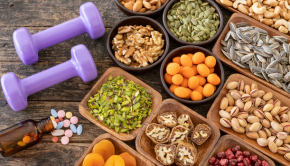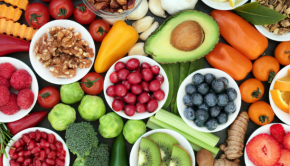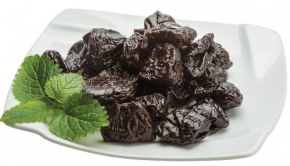Foods the Brain Either Loves or Hates
Which kind of diet supports a healthy brain is good to know. If someone wants to be as healthy as possible, they need to take note of some of these common foods that either help or hurt their brain.
Six Foods The Brain Loves
- Dark chocolate: Chocolate improves our thinking process, as well as our mood. It increases blood flow to the brain and contains an important chemical known as phenyl ethylamine, a substance the brain makes when someone is experiencing loving feelings. Chocolate is a natural anti-inflammatory, and the higher the cocoa content, the healthier it is.
- Berries: Another yummy brain food is berries, which help both short-term and long-term memory because of the chemical ellagitannin. Berries also have antioxidant qualities, which is a fancy way of saying they prevent the brain and other body parts from wearing out. Raspberries, blueberries, blackberries, strawberries—the brain loves them.
- Salmon and other wild fish: Fish is high in Omega-3 fatty acids, which help to form a healthy coating on the nervous system and makes the transmission of brain impulses work better. Omega-3s help the brain to get a richer amount of oxygen and enhance the learning process while safeguarding the retention of previous memories.
- Nuts: Nuts contain constructive brain chemicals like Omega-3 and Omega-6 fatty acids, vitamin B6 and vitamin E, essential in a healthy, thinking brain. Walnuts are high in DHA, which protects the brain and improves brain longevity and long-term health. Almonds and hazelnuts supply lots of vitamin E, which slows brain aging and improves memory. Peanuts are high in niacin, which improves blood flow and has been related to decreasing the likelihood of Parkinson’s or Alzheimer’s.
- Broccoli: Dark green veggies contain vitamin K, which prevents calcification of the blood vessels and tissues of the brain, which means that brain arteries stay healthy and supple instead of hardening, a common precursor to Alzheimer’s.
- Eggs: Eggs are a consistent source of choline, necessary for the development of the brain tissues and the function of memory. Eggs also contain vitamin B12, which fights the brain aging and shrinkage that accompanies Alzheimer’s and other brain-wasting diseases.
Five Foods The Brain Wishes We Wouldn’t Eat
- High-fructose corn syrup: HFCS is a sweetener found in many foods which the brain and body regard as toxic. Excessive fructose hinders memory, reduces learning capability and leads to overall poorer brain function, including slowing insulin production, which damages the brain’s energy mechanism.
- Artificial sweeteners: Many of these chemicals are actually neurological poisons that cause brain damage, like aspartame, which has been linked to brain tumors, migraine headaches, dizziness and seizures, as well as multiple sclerosis, Parkinson’s, Alzheimer’s and other serious neurological diseases. Aspartame is one of the most dangerous substances permitted by law, and should be avoided. Most of the other artificial sweeteners aren’t much better; read up on them.
- Fried foods: When food has too much Omega-6 fatty acids and not enough Omega-3 fatty acids, it stresses the body and brain, causing hyperactivity, faulty behavior and inefficient thinking. Nerve cells become injured and blood vessels are compromised, diminishing normal blood and oxygen supply to the brain. Fried foods tend to be too high in Omega-6 fats, and should be eaten less frequently.
- Processed meats: Natural proteins are needed by the body to build muscle, but processed protein has an opposite, unhealthy effect. The proteins in bacon, sausages, salami or hot dogs actually attack the brain and nerve system and causes chronic inflammation.
- MSG: Monosodium glutamate causes brain damage by irritating nerve cells. The U.S. Food and Drug Administration says that MSG is a factor in many neurological diseases, including Alzheimer’s, and leads to headaches, depression and obesity.
It’s easy to see that feeding oneself healthfully is good for the brain, and avoiding a few kinds of foods will help one avoid illness related to unhealthy brain function. Choosing a better diet will come back to reward one many times over – take this seriously, and if someone needs help figuring out what to eat and what to stay away from, ask a neighborhood health and wellness expert.
Donna Perillo, DC, NMD, CNS, of Chiropractic Healing Center of NJ, provides chiropractic care, physical therapy, acupuncture, nutrition, weight loss and massage therapy. For more information, call 973-872-2133 or visit ChiroHealingNJ.com.





























